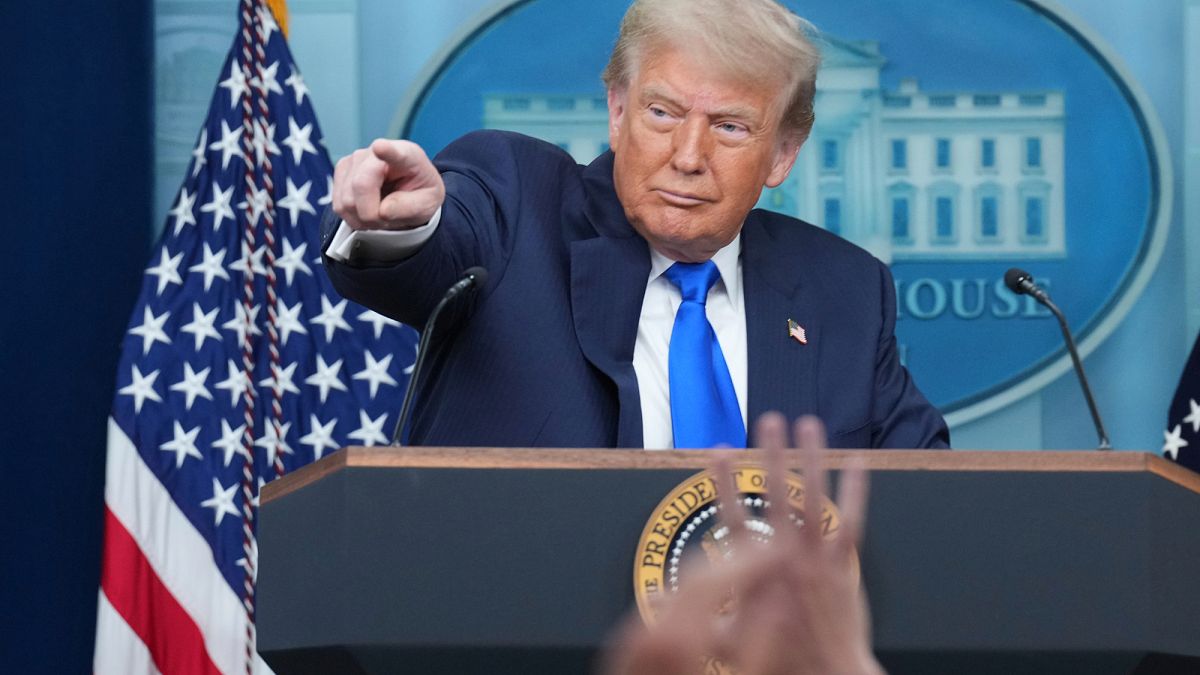Published on
US senators defeated a proposal that would ban states from regulating artificial intelligence (AI) companies.
The US Senate voted 99-1 on Tuesday to get rid of the provision from President Donald Trump’s big bill of tax breaks that would’ve banned any AI regulation for 10 years at the state level.
Under the original proposal, states that wanted federal AI investment would have to “pause any enforcement of any state restrictions, as specified, related to AI models, AI systems, or automated decision systems” for a decade.
Republicans tried to save the provision by bringing it down to five years but that was later abandoned when Republican senators Edward Markey, Maria Cantwell and Marsha Blackburn introduced a late-night motion to scrap the entire proposal.
‘Massive bipartisan opposition’
State lawmakers and AI safety advocates argued that the rule is a gift to an industry that wants to avoid accountability for its products.
“Congress will not sell out our kids and local communities in order to pad the pockets of Big Tech billionaires,” Senator Markey said in a statement after the vote, noting that the provision to strip AI regulation is “dangerous”.
Max Tegmark, president of the Future of Life Institute, said in a statement that the “overwhelming rejection” to the amendment “underscores the massive bipartisan opposition to letting AI companies run amok”.
“The CEO’s of these corporations have admitted they cannot control the very systems they’re building, and yet they demand immunity from any meaningful oversight,” he wrote.
Those in President Trump’s camp like argue that a patchwork of state and local AI laws could hinder the country’s progress in the industry and could hurt its capability of competing with China.
Earlier this year, a report from Stanford University found that the US is still in the lead, followed closely by China, in the global race to become an AI leader.
World leaders say that winning the race is critical to national security, developments in health, business and technology.
What do US Big Tech companies think?
Big Tech companies are split on how far AI regulation should go and who should be enforcing it.
OpenAI, the parent company of ChatGPT, said in its submission for the US AI Action Plan that it favours a “regulatory strategy that ensures the freedom to innovate,” which would include “voluntary partnership” between government and the private sector.
Google advised lawmakers to “preempt a chaotic patchwork of state-level rules on frontier AI development,” by focusing on the existing regulations that are already in place.
In its submission, Meta quoted US Vice President JD Vance who said earlier this year that “excessive regulation of the AI sector could kill a transformative industry just as its taking off”.
Meta specified that it considers regulations that impose restrictions on AI models “based on obsolete measurements,” or impose “onerous” reporting or testing would “impede innovation in the US”.
Along with changes to state AI legislation, Meta also asked the Trump administration to “reduce barriers to AI infrastructure investment,” such as permitting barriers for data centre investments.
What has Trump done so far on AI?
In one of the first acts of his second term, Trump released an executive order that called for the end of “AI policies and directives that act as barriers to American AI innovation,” so the country can retain “global leadership”.
Trump also removed a 2023 executive order from former president Joe Biden that increased the federal government’s capacity to “regulate, govern and support responsible use of AI”.
Trump has also introduced another executive order to enhance the use and teaching of AI systems in US schools, revised government procurement laws so agencies can adopt AI and launched an AI action plan that is currently under review.

